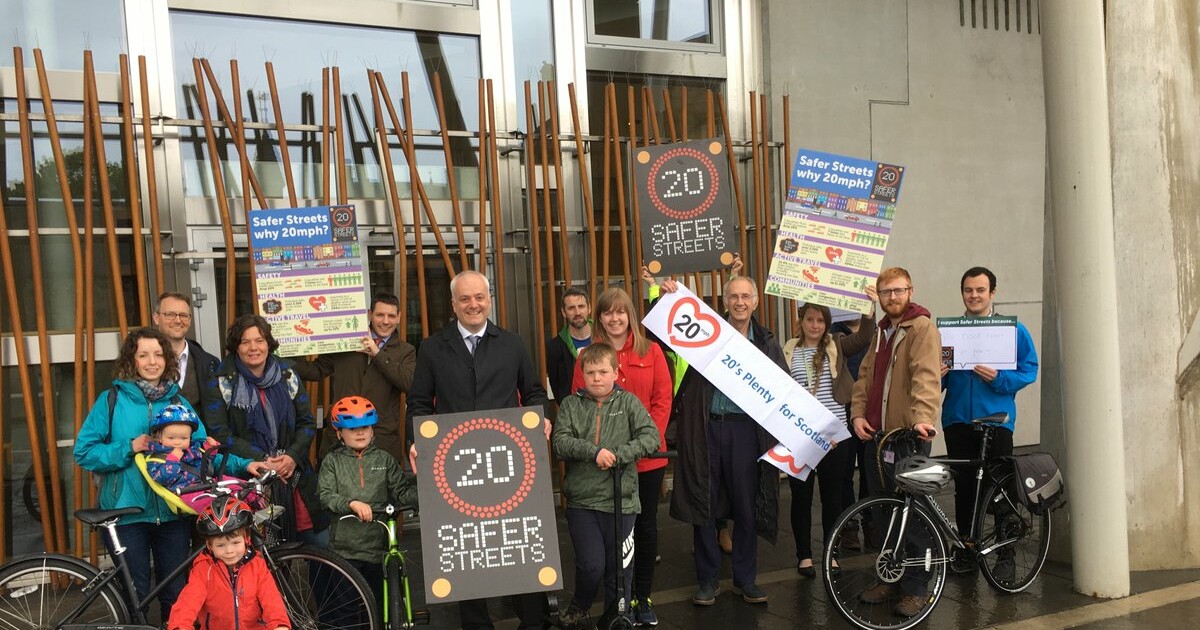20mph speed limit in built-up areas would save the public up to £40m a year

A 20mph speed limit in built-up areas, as proposed by Scottish Green MSP Mark Ruskell, would save the public between £7.8m and £39.9m per year, a new report by the Glasgow Centre for Population Health (GCPH) has estimated.
An analysis of cost savings was carried out by the GCPH adapted from a model used in an equivalent study in Wales.
The report used three models: a higher estimate of 13.5% reduction in casualties based on similar results to Bristol’s 20mph scheme; a middle estimate of 9.5% based on the average speed reduction in the South Central Edinburgh pilot; and a significantly lower estimate of 2.6% – the amount required to save just one life per year.
Under the higher estimate, there could be 755 fewer casualties, including saving save five lives per year and £39.9m. The middle estimate could result in 531 fewer casualties and save three lives a year and £27m. The lower estimate could reduce casualties by 145 per year, save one life per year and £7.8m.
These figures account only for road casualty reductions and do not take into account the lives and money saved as a result of cleaner air and increased active travel which are added benefits of 20mph speed limits.
Mark Ruskell MSP said:
“I am delighted to hear the report from GCPH highlights not only the significant benefits 20mph brings to people’s lives, including their safety, health and well-being, but the substantial savings to the public purse. Recently, East Lothian Council announced they were delaying any new 20mph Limits to see how this member’s bill progresses through the parliament. It is essential that the Parliament process this bill in a timely manner.
“This bill will save lives, make our living spaces more pleasant, and, in the long run save money. I look forward to it receiving committee scrutiny in the months ahead.”
Bruce Whyte, Public Health Programme Manager at the GCPH and author of the report, said:
“Reducing road traffic speed in our towns and cities will save lives and reduce the number of people injured on our roads, particularly among more vulnerable road users like pedestrians and cyclists. Lowering the average road speed will make roads safer and help to encourage more people to walk and cycle, contributing to greater physical activity, better air quality and reduced carbon emissions.
“A safer lower speed environment around schools would also encourage more children to walk, cycle and scoot to school and would help to embed every day active travel at any early age.”